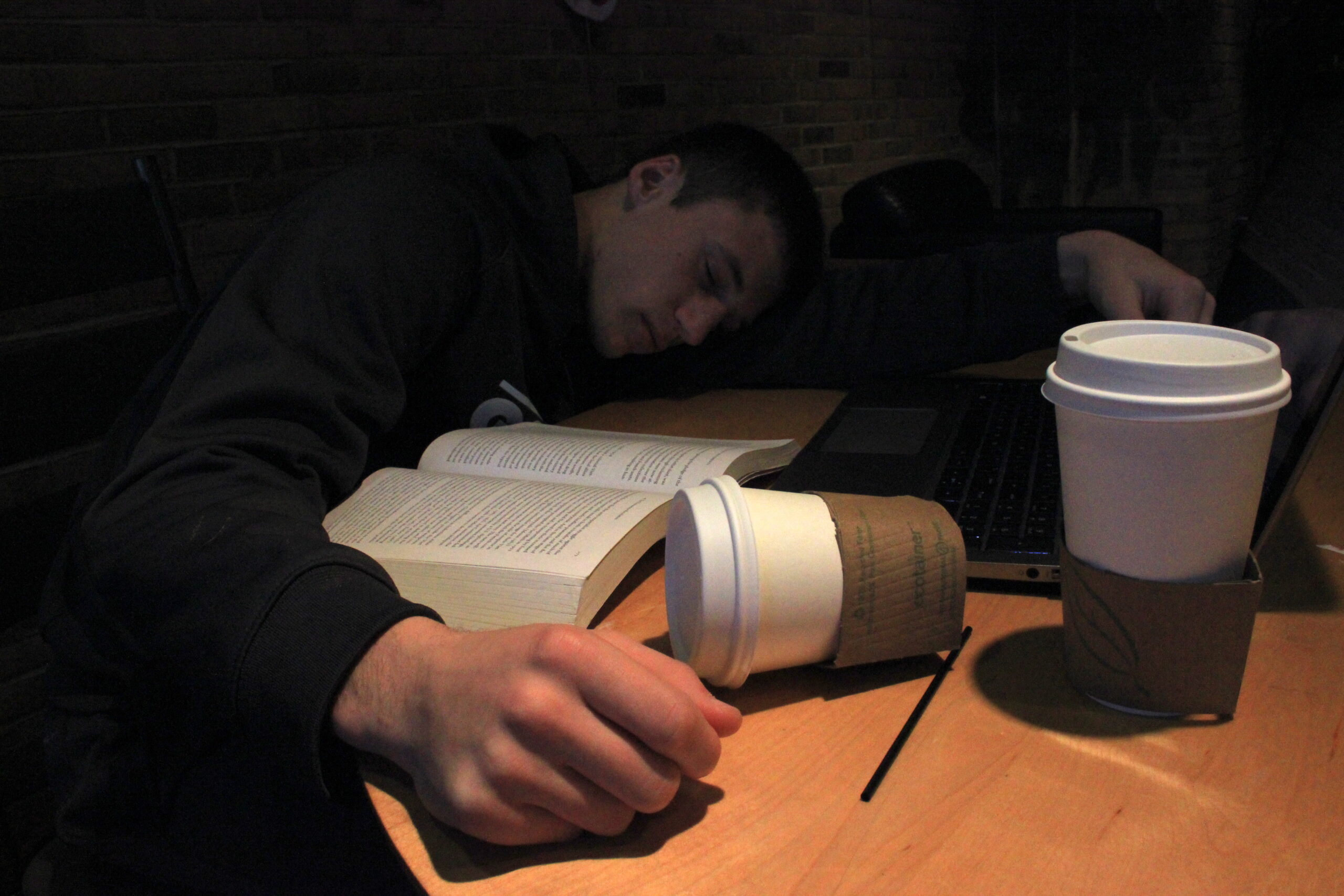By: Kolton Nay
College students, many say, are forced to divide their lives into three parts: having a social life, maintaining good grades and getting enough sleep. Succeeding in all three areas is said to be impossible.Since giving up a social life deems you a recluse and giving up grades pegs you as a slacker, for many students this semester, that left only one place to cut: sleep.
An informal survey of 45 randomly selected Goshen College students of all ages and class years found that students, on average, are getting only 6.2 hours of sleep per night. That’s well below the seven to nine hours recommended by medical authorities, according to Jenny Beers, the college counselor.
One third of all students say they sleep less than four hours on particularly “bad nights.” Reasons vary from partying on the weekends, homework overloads, long sport competitions or just trying to keep up on the news.
“You shouldn’t forgo sleeping for other people,” reasoned Cara Paden, junior music major, “but I actually value my relationships more than I do my personal health.” Paden gets six hours of sleep on average and only three hours on nights when she wants to have fun with friends and socialize. She explained that this decision is often subconscious, so it can cause a lower stability in her health than she’d like to have.
Mitchell Brickson is a junior physics major who has pulled multiple all-nighters this semester. His average amount of sleep was five hours per night for the first half of the semester, but now that he’s dropped Game Theory from his workload, he gets about eight hours every night. “I simply refuse to do anything less than my best on any academic assignment, and I won’t accept grades less than an ‘A,’” said Brickson. “Trying to get an ‘A’ in Game Theory, where we were made to regularly gamble some of our points during class, was just killing me.” Now that he has more time to sleep, he said he is much happier. “I didn’t realize just how dismal I was becoming until after I dropped it,” said Brickson.
Dalton Shetler, first-year broadcasting major, said he gets only about 5 hours of sleep on typical weekday nights. Dalton juggles GC Basketball, working at the Globe and The Correspondent, and then a full load of academic credit hours. “Extracurriculars take up a huge part of my day,” said Shetler.
On Tuesday the 12th of November, Shetler went to bed at 2:00am after just finishing up two papers for his writing classes and woke up 3 hours later to attend a 5:45 basketball practice. He was tired, but Shetler thinks his lifestyle is worth the sleep deprivation. “It’s valuable, looking into my future,” said Shetler. “The extra hours [that I spend on extracurriculars] may give me an advantage over other students in applying for jobs.”
Although many students feel they must give up sleep for their goals or obligations, it seems that it is possible to succeed all three areas of college life. Irene Schmid, a sophomore Nursing major, has found a way to have substantial time with her friends, achieve good grades, and still have time for eight hours of sleep per night. “I probably spend the least amount of my time doing social things in the dorms,” said Schmid, “but that isn’t because I value sleep, but because I don’t enjoy these events as much as most college students.”
She even gets about seven hours on “late nights” because, for her, socializing takes place in a different way. “I participate in many on-campus clubs, co-curriculars, and events where I get my social needs met. I enjoy quality time with others over quantity, which means sleep can be more of a priority in my life.”



